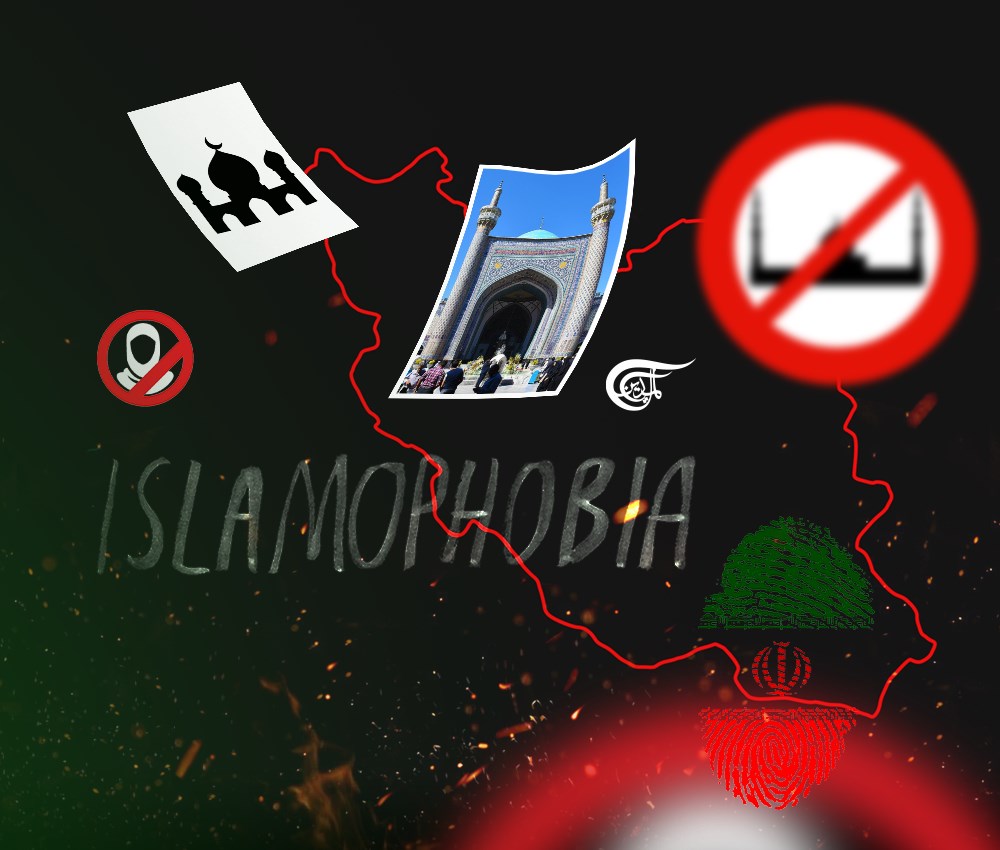From “Fundamentalists” to “Islamists”: Is there a problem of Islamophobia on the “left”?
Since the outbreak of the “protests” in Iran, I have increasingly come across socialist or “left-wing” people of various stripes using language that is common ground with hard-core Islamophobes. How are we to make sense of this?
Last week, I was invited to speak at the British Left-wing meeting on the protests in Iran. Much could be said about this meeting, but I want to focus on one theme, which I fear is too prevalent on the left and is not really recognized as an issue. The theme is Islamophobia. This appears to affect even those leftists who are solid on almost all other issues including Zionism and Palestine and sometimes even Ukraine.
The Iranian “opposition”
The Islamophobia of monarchist opposition to the Islamic Republic is clear enough. In alliance with supporters of the terror group the Mujidheen-e-Khalq, in late September, they attacked worshippers at the Islamic Centre of England, the main mosque of London's Shia Iranian community. Windows were reportedly smashed, and alcohol was thrown.
Of “Fundamentalists”, “Islamists”, and “Mullahs”
Last week at the meeting, among the terms on display were “Mullahs”, “Islamist”, and “loony Islamic cult." The speakers' names are public so I will mention them by name, but I will spare the blushes of others who spoke or participated. The two other speakers apart from me were two Iranian women. The first is Nasrin Parvaz; the author of a book on her experience in prison in Iran, and the second is Yassamine Mather; a long-time campaigner with various groups associated with the Communist Party of Great Britain.
Hands off the People of Iran
Mather wrote a piece in the Communist Party paper the Weekly Worker on the protests in which she referred to the “loony Islamic cult, Mojahedin-e-Khalq”. The MeK is a terror group with a base in Albania, a NATO member, where it maintains a troll farm among other infrastructure. It was removed from the US register of terrorist groups in 2012 following an effective lobbying campaign with Neocon support. There are many things to be said politically about the MEK, but condemning it as “Islamic” is straightforward racism. We should not be surprised. Mather is a founder of Hands off the People of Iran, a CP-related group that refused affiliation with Stop the War Coalition in 2007 on the grounds of being too close to the imperialist countries in its support for regime change in Iran.
Islamist – useful analytical term or racist smear?
The other speaker Nasrin referred to the Islamic Republic as “Islamist”, a term that – she claimed – is used by the Republic itself. This is of course untrue. Of course, Parvaz is not the only one to use the term, for the other speaker at the event Yassamine Mather, as well as other "left-wing" commentators, used it too. They use it in much the same way it is used by neoconservatives and Zionists. The terms Islamism and Islamist have a history.
In a valuable contribution, Asim Qureshi of the civil rights group Cage has excavated the colonial origins of the idea of pan-Islamism. His historical account takes in the nineteenth century with the narrative stopping in 1906. Since then, of course, there has been a significant development, not least since the beginning of the 1980s – occasioned by the Islamic revolution in Iran, the rise of the “Afghan rebels”, and events in Egypt associated with the struggle against the Muslim Brotherhood. These events have concentrated minds in Washington, London, Paris, and "Tel Aviv". It is as a result of the imperialist countries' response to these events that the term “Islamist” emerged only in the late 1970s at which time, also, the term Islamism was redefined. An early sign of this was a famous 1976 essay by the British Zionist historian Bernard Lewis titled “The Return of Islam”. He was followed by French intellectuals hostile to the liberation movements of North Africa. Later, the term was promoted via a journal called Central Asian Survey, which we now know appears to have been a US propaganda operation.
As Andreas Krieg, an academic at King’s College London writes, the use of the term places ISIS “on the same political spectrum as groups like … the Popular Mobilisation Forces in Iraq, who sacrificed everything in order to halt” ISIS. He also notes “it was only after 1979 that the concept experienced a revival that would link Islamism to ‘extremism’ and ‘violence’ in a supposedly conspirative effort by Muslims to create a pan-Islamist entity to rule the world.”
The emergence of “Islamic terrorism”
And it is this linkage that has also created the similarly bankrupt notion of “Islamic terrorism”. This again appears to be connected to Bernard Lewis who chaired a panel at the Jonathan Institute Second Conference on International Terrorism in Washington DC in 1984 on “Terrorism and the Islamic World”. The panel included three prominent Islamophobic Professors Eli Kedourie, J.B. Kelly, and P.J. Vatikiotis. The event was organized by Benjamin Netanyahu, the then-Ambassador of “Israel” to the UN. It marked the initiation of the idea that there was something intrinsic to Islam that linked it to terrorism, an idea that has since been capitalized on by the Zionist movement and its allies.
Women Against Fundamentalism
Another key term in left Islamophobia is “fundamentalism” In the UK, a certain current of feminists created a group called Women Against Fundamentalism back in the late 1980s. It's not as if they had a discriminating conception of “fundamentalism” pointing only at a small subset of those in religious movements. No, they specifically stated (1994, p. 7) that they were referring to movements that “use religion as a basis” for political strategies. That is practically all Muslim political movements with the exception of a handful of Westernised secular groups, which are almost without exception funded by state-related interests, some of which we will mention below. The definition would also include Christian liberation theology and even the Quakers, the well-known liberal Christian group.
It’s extraordinary that it was thought appropriate for this Islamophobic term to be used in the name of an organization claiming to be progressive, but there it is. One of the key activists was Julia Bard, a member of the Jewish Socialists’ Group – putting one of a number of question marks over that organization. Others involved included Nira Yuval-Davis who describes herself as “an anti-Zionist diasporic Israeli Jew;” a term which appears to endorse the false Zionist conception that Jews outside Israel are a diaspora and give political legitimacy to the concept of “Israel”. Perhaps the most well-known figurehead of the WAF was Gita Sahgal, best known for attacking the civil rights group Cage as “Jihadi”, on which I have previously written at length. The use of the term “Jihadi” is yet another Islamophobic term for Muslims active in political life.
Enter Maryam Namazie
Sahgal has also been close to the Council of Ex-Muslims Britain (CEMB). She appeared, for example, for “evening drinks” at a meeting in 2013 along with Maryam Namazie, the spokesperson for the CEMB. CEMB is an anti-Muslim group that was founded in 2007. Namazie, who is Iranian, was prominent in the demonstrations in early October against the Iranian government in Trafalgar Square on behalf of the CEMB. Images of her topless protest were later removed by Instagram and Twitter.
She joined the Islamophobic monarchists and other anti-government factions that day. Namazie is of course a former leading member of the Worker-Communist Party of Iran, though she maintained (as of 2017) that she is still a “communist”. This has not stopped her from working with the far-right via her “anti-Shariah” campaign group (One Law for All). Among its supporters from Islamophobic networks are leading neoconservative networkers Ayaan Hirsi Ali and Caroline Fourest, as well as Zionists such as Alan Johnson, who works for the "Israel" lobby group BICOM. In addition, there is a range of UK anti-Muslim civil society groups including the Lawyers’ Secular Society, the National Secular Society, Women Against Fundamentalism (mentioned above), and British Muslims for Secular Democracy. One Law for All also worked closely with the well-known far-right figure Baroness Cox. Among other claims to fame, Cox was responsible for inviting the Dutch Islamophobe, Geert Wilders, to the UK.
This is not just a question of language, but a tendency on the left to see specifically Muslim involvement in politics as problematic unless it conforms to Western secularist tenets of belief, tenets which only really apply to – or at least emerged from – a critique of Christianity specifically. This is to say that it is not only the “pro-war” (secular) left with which there are problems but also parts of the “anti-war” (secular) left. If we are to foster an international realist anti-Imperialist movement, we will need to leave Islamophobic ideas and conceptions behind and develop a more thoroughgoing critique of Western culture and society.
_______________________________
David Miller is co-editor of the book What is Islamophobia? (Pluto 2017)

 David Miller
David Miller
 9 Min Read
9 Min Read












